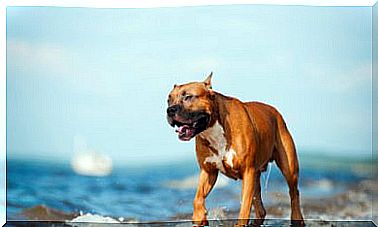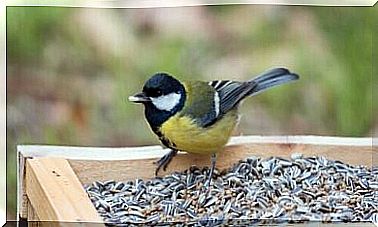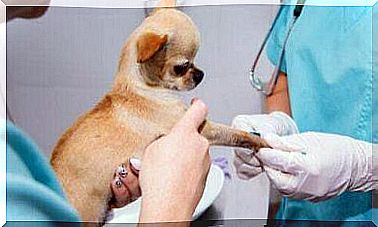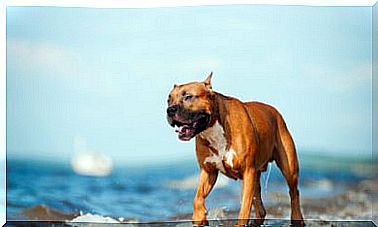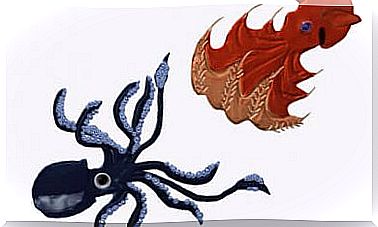Which Fruits And Vegetables To Choose For Our Animals?
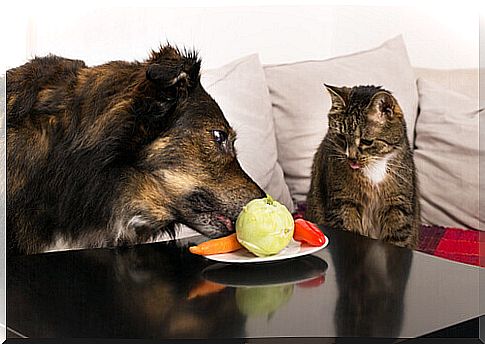
Animals require special nutrition and not all foods we eat are suitable for them as well. However, there are some that, instead, are also excellent for our four-legged friends and that can even help them improve their health or some of their physical appearance. Would you like to know what they are? They are found mainly in the fruit and vegetable group.
We tell you what these foods are and how they can be good for your pet. Read on!
Pet feeding: fruits and vegetables?
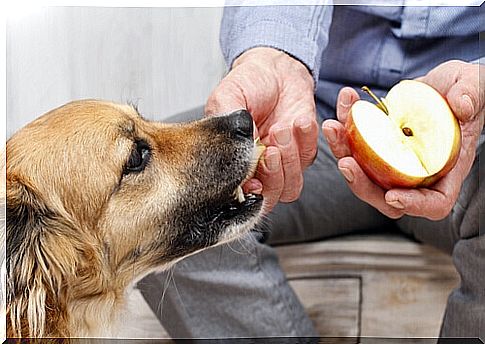
If our pets, such as dogs and cats, were in their natural habitat, the ideal would be a meat-based diet, as they are carnivores. This means that the animal would not need anything else, since the rest of the necessary nutrients would absorb them through the ingestion of its prey.
Carnivorous animals eat other animals which, in turn, feed on grass, fruit and vegetables. Through this cycle, the former are able to absorb all the nutrients the body needs.
However, our pets do not hunt and are not in their natural habitat, so it is our responsibility to give them everything they need to be healthy and physically strong.
We have already seen in other articles that our animals cannot always take the food that we humans ingest, however, there are some that are excellent for their health. Would you like to know which ones? Fruits and vegetables, although not all.
Fruits and vegetables suitable for our pets
Let’s discover the fruit that is good for dogs:
– Blueberries. They have a great antioxidant power, which allows to avoid diseases related to the heart. They also contain vitamin C and fiber which will favor the action of the immune and digestive systems of animals. The seeds, however, could be bad for them, so remember to remove them.
– Apple. It is ideal for treating diarrhea, for example, as it has important digestive properties, as well as vitamin C, bone-protecting calcium, and anti-inflammatory properties. It is better to peel it so that the animal does not drown, in addition it will avoid the astringent effect.
– Pear. Despite what many have said, pear contains very few sugars, since it is composed of 80% water; it is also an excellent source of potassium and fiber.
-Banana. Its high potassium and fiber content promotes the dog’s mental agility and takes care of its digestive system. Sometimes, however, it could cause him diarrhea. If you see this happening, eliminate bananas from his diet.
– Strawberry. Excellent for our pet’s skin. Like blueberries, it has a high content of antioxidants, which counteract cellular oxidation.
– Watermelon. High water content, excellent for fighting the heat and keeping the animal hydrated. However, you will need to take it in moderation due to its high fructose content.
Vegetable for dogs
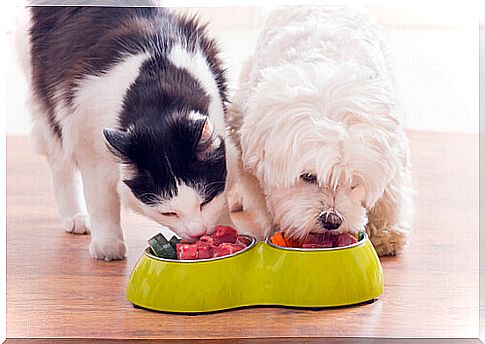
Now let’s see the vegetables suitable for dogs:
-Spinach. They regulate the intestinal flora thanks to their high fiber content. They are rich in vitamins A, C, E, B and F. In order for them to maintain their properties, they must be given raw, washed and, of course, in small pieces to the dog, so that he can swallow them easily.
– Lettuce and cabbage. They are both an excellent source of iron and antioxidants, as well as analgesic and purifying properties. Both ingredients must be washed very well: remember that they grow in the earth and that they can contain bacteria that are harmful to the animal.
– They sit. You have to give it to him in moderation. It is diuretic, digestive, anti-inflammatory and helps strengthen the immune system. Reduces pain in dogs with arthritis. If your furry friend doesn’t like it, you can try blending it on its own or with other vegetables.
– Carrot. This vegetable will strengthen your dog’s teeth, as well as being antioxidant and digestive. Eliminate bacterial plaque.
– Pumpkin. It is indicated in the event that the animal suffers from constipation, thanks to its high fiber content. You can give it raw or cooked, but if you opt to cook it, don’t overdo it, otherwise it will lose its properties.
Remember that these fruits and vegetables will be a complement to your pet’s diet, so they should never make up more than 15 or 20% of his diet.

